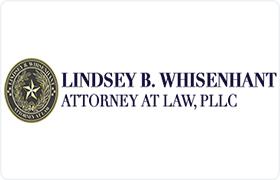Lufkin DUI-DWI Lawyer, Texas
Sponsored Law Firm
-
 x
x

Click For More Info:
-
Lindsey B. Whisenhant Law Office, PLLC
130 S Charlton St Woodville, TX 75979» view mapCriminal Defense Legal Experience That Gets Results
We take the time to understand your goals and then work with you to ensure we get the job done as quickly and cost-effectively as possible.
800-915-8980
Not enough matches for Lufkin DUI-DWI lawyer.
Below are all Lufkin Criminal lawyers.
Larry G. Byrd
Real Estate, Criminal, Accident & Injury, Business
Status: In Good Standing Licensed: 57 Years
Thomas Ryan Deaton
Family Law, Divorce & Family Law, Criminal, Construction
Status: In Good Standing Licensed: 51 Years
Thomas Weldon Deaton
Family Law, Divorce & Family Law, Criminal, Construction
Status: In Good Standing Licensed: 51 Years
John A. Peralta
Juvenile Law, State Appellate Practice, Criminal
Status: In Good Standing Licensed: 35 Years
Albert John Charanza
Food & Drug Administration, Sex Discrimination, Domestic Violence & Neglect, DUI-DWI, Criminal
Status: In Good Standing Licensed: 32 Years
Lisa Grissett Flournoy
Other, State Appellate Practice, Family Law, Criminal
Status: In Good Standing Licensed: 27 Years
Roger Neil Moss
Family Law, Divorce & Family Law, Criminal
Status: In Good Standing Licensed: 54 Years
Melissa Leanne Hannah
Commercial Real Estate, Family Law, Criminal, Business & Trade
Status: In Good Standing Licensed: 19 Years
Jimmy A. Cassels
Litigation, Family Law, Criminal, Administrative Law, Wills
Status: In Good Standing Licensed: 48 Years
 Lindsey Whisenhant Woodville, TX
Lindsey Whisenhant Woodville, TX Practice AreasExpertise
Practice AreasExpertise
